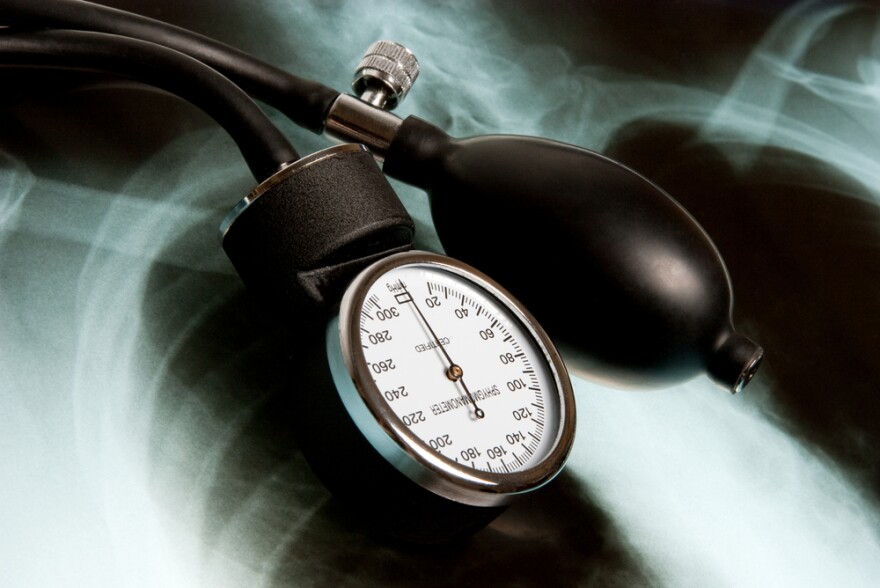Heart failure is the focus of this week’s Vital Signs -- the heart’s inability to effectively pump blood to the rest of the body, especially out of the lungs.
The Centers for Disease Control says about 5 million people in the U.S. have heart failure, and about half who develop it will die within five years of diagnosis.
But Dr. Jeff Schussler, a cardiologist with Baylor Medical Center, says heart failure can be treated, and even avoided.
Causes of heart failure
The Mayo Clinic staff says any of the following conditions can damage or weaken your heart and can cause heart failure. Some of these can be present without your knowing it:
- Coronary artery disease and heart attack.
- Faulty heart valves.
- Damage to the heart muscle (cardiomyopathy).
- Myocarditis.
- Heart defects you're born with (congenital heart defects).
- Abnormal heart rhythms (heart arrhythmias).
- Other diseases. Chronic diseases such as diabetes, hyperthyroidism, hypothyroidism, emphysema, or a buildup of iron (hemochromatosis) or protein (amyloidosis) also may contribute to heart failure. Causes of acute heart failure include viruses that attack the heart muscle, severe infections, allergic reactions, blood clots in the lungs, the use of certain medications or any illness that affects the whole body.
Symptoms of heart failure
- Shortness of breath (dyspnea) when you exert yourself or when you lie down
- Fatigue and weakness
- Swelling (edema) in your legs, ankles and feet
- Rapid or irregular heartbeat
- Reduced ability to exercise
- Persistent cough or wheezing with white or pink blood-tinged phlegm
- Increased need to urinate at night\
- Swelling of your abdomen (ascites)
- Sudden weight gain from fluid retention
- Lack of appetite and nausea
- Difficulty concentrating or decreased alertness
- Sudden, severe shortness of breath and coughing up pink, foamy mucus
- Elevated blood pressure
- Chest pain, if your heart failure is caused by a heart attack
When to see a doctor
See your doctor if you think you might be experiencing signs or symptoms of heart failure. Seek emergency treatment if you experience any of the following:
- Chest pain
- Fainting or severe weakness
- Rapid or irregular heartbeat associated with shortness of breath, chest pain or fainting
- Sudden, severe shortness of breath and coughing up pink, foamy mucus
Risk factors include
- High blood pressure.
- Coronary artery disease.
- Heart attack.
- Diabetes.
- Some diabetes medications.
- Sleep apnea.
- Congenital heart defects.
- Viruses.
- Alcohol use.
- Irregular heartbeats.




